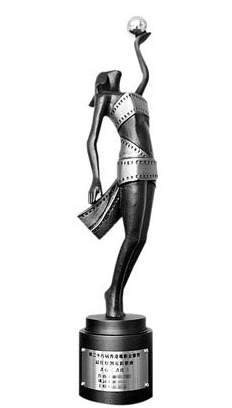
The Hong Kong Film Awards, founded in 1982, is an annual film awards ceremony in Hong Kong. The ceremonies are typically take place in April, and have mostly been held at the Grand Theatre of the Hong Kong Cultural Centre since 1991. The awards recognise achievement in various aspects of filmmaking, such as directing, screenwriting, acting and cinematography. The awards are regarded as the Hong Kong equivalent of the Academy Awards.

The 1st Hong Kong Awards ceremony, honoured the best films of 1981 and took place on 9 March 1982, at the Hong Kong Arts Centre Shouson Theatre in Wan Chai, Hong Kong. The ceremony was hosted by Eric Ng and Zhan Xiaoping, during the ceremony awards are presented in 5 categories. The ceremony was sponsored by RTHK and City Entertainment Magazine.

Ceremony for the 26th Hong Kong Film Awards was held on 15 April 2007 in the Hong Kong Cultural Centre and hosted by Bowie Tsang, Nick Cheung and Lam Chi-chung. Twenty-six winners in nineteen categories were unveiled, with film After This Our Exile being the year's biggest winner. The ceremony also featured performances by Jay Chou, Eason Chan, Alive and Jane Zhang.
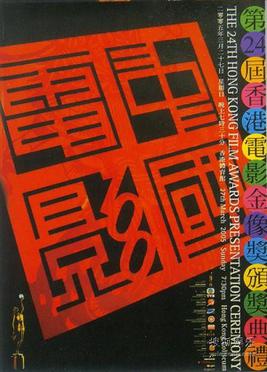
The 24th Hong Kong Film Awards ceremony was held on 27 March 2005, in the Hong Kong Coliseum and hosted by Carol Cheng and Lawrence Cheng. Twenty-nine winners in nineteen categories were unveiled, with films Kung Fu Hustle and 2046 being the year's biggest winners. In conjunction with a hundred years of the Chinese cinema, a list of Best 100 Chinese Motion Pictures, consisting of 103 Chinese films selected by a panel of 101 filmmakers, critics and scholars, was also unveiled during the ceremony.

The ceremony for the 22nd Hong Kong Film Awards was held on 6 April 2003 in the Hong Kong Cultural Centre and hosted by Eric Tsang, John Shum, Athena Chu and Anna Yau. Twenty-seven winners in nineteen categories were unveiled. The year's biggest winner turned out to be Infernal Affairs, which won seven awards, including Best Film, Best Director, Best Screenplay, Best Actor, Best Supporting Actor, Best Film Editing and Best Original Film Song. Besides the eighteen regular awards, the 22nd Hong Kong Film Awards also presented veteran actors Cho Tat Wah and Shek Kin with the Professional Achievement Award.

The 19th Hong Kong Awards ceremony, honored the best films of 1999 and took place on 16 April 2000 at the Hong Kong Coliseum, Hung Hom, Kowloon, Hong Kong. The ceremony was hosted by Eric Tsang, Sandra Ng and Vincent Kok, during the ceremony awards are presented in 16 categories.
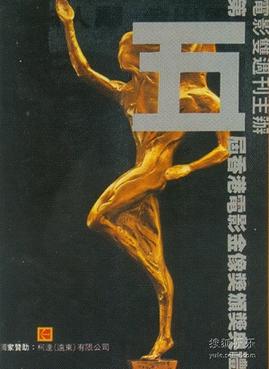
The 5th Hong Kong Awards ceremony, honored the best films of 1985 and took place on 6 April 1986, at the Regent International Hotel, Hong Kong. The ceremony was hosted by Winnie Yu, during the ceremony awards are presented in 15 categories. The ceremony was sponsored by City Entertainment Magazine.
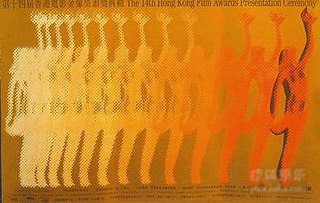
The 14th Hong Kong Awards ceremony, honored the best films of 1994 and took place on 23 April 1995 at Hong Kong Academy for Performing Arts, Wan Chai, Hong Kong. The ceremony was hosted by John Sham and Meg Lam, during the ceremony awards are presented in 17 categories.

The 13th Hong Kong Awards ceremony, honored the best films of 1993 and took place on 22 April 1994 at Hong Kong Academy for Performing Arts, Wan Chai, Hong Kong. The ceremony was hosted by Lydia Shum and John Sham, during the ceremony awards are presented in 17 categories.
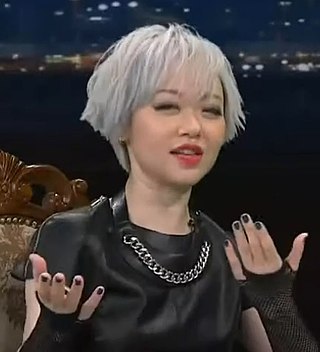
Wong Chun-chun is a Hong Kong film director, screenwriter, actress and producer. She is known for her female-centric films which include Women's Private Parts (2000), Truth or Dare: 6th Floor Rear Flat (2003) and The Stolen Years (2013). Wong was awarded the "Hong Kong Ten Outstanding Young Persons" by the Junior Chamber International Hong Kong in 2002, and "Young Achiever of the Year" in the Women of Influence award by United States Chamber of Commerce in 2007.
The Hong Kong Film Award for Best Actress is an award presented annually at the Hong Kong Film Awards (HKFA). It is given to honour an actress who has delivered an outstanding performance in a Hong Kong film. The 1st Hong Kong Film Awards ceremony was held in 1982, with no formal nomination procedure established; the award was given to Kara Hui for her role in My Young Auntie. After the first award ceremony, a nomination system was put in place whereby no more than five nominations are made for each category and each entry is selected through two rounds of voting. Firstly, prospective nominees are marked with a weight of 50% each from HKFA voters and a hundred professional adjudicators, contributing towards a final score with which the top five nominees advance to the second round of voting. The winner is then selected via a scoring process where 55% of the vote comes from 55 professional adjudicators, 25% from representatives of the Hong Kong Performing Artistes Guild and 20% from all other HKFA Executive Committee Members.
The Hong Kong Film Award for Best Action Choreography is an annual Hong Kong industry award presented to a choreographer or a group of choreographers for the best achievement in action choreography. Since action scenes have an essential role in Hong Kong action cinema, this award is regarded as an important category.

The 2nd Hong Kong Film Awards presentation ceremony, honored the best films of 1982 and took place in Hong Kong Baptist University, Academic Community Hall, Kowloon Tong, Hong Kong on 31 August 1983 at 8 pm. The ceremony was hosted by Eric Ng and Zhan Xiaoping, during the ceremony awards are presented in 13 categories. The ceremony was sponsored by Sing Tao Newspapers Limited and City Entertainment Magazine.

The 3rd Hong Kong Awards ceremony, honored the best films of 1983 and took place on 4 August 1984, at the Regent International Hotel, Hong Kong. The ceremony was hosted by Chung King-fai, during the ceremony awards are presented in 12 categories. The ceremony was sponsored by RTHK and City Entertainment Magazine.

The 4th Hong Kong Awards ceremony, honored the best films of 1984 and took place on 13 April 1985, at the Furama Hong Kong Hotel, Hong Kong. The ceremony was hosted by Winnie Yu, during the ceremony awards are presented in 14 categories. The ceremony was sponsored by City Entertainment Magazine.
The 6th Asian Film Awards is an intra-continental annually-presented award ceremony hosted during the Hong Kong International Film Festival to honour the best Asian films of 2011.

The 35th Hong Kong Film Awards presentation ceremony took place in Hong Kong Cultural Centre on 3 April 2016. The host of the awards ceremony was Sean Lau. The state-owned China Central Television did not air the program as it had previously for every year since 1991; this was because the film nominated for best picture in the awards, Ten Years, was seen to be critical of China's influence over Hong Kong. The Chinese government was reported to have ordered the state broadcaster not to broadcast the ceremony.

The 34th Hong Kong Awards ceremony, honored the best films of 2014 and took place on 19 April 2015 at the Hong Kong Cultural Centre, Kowloon, Hong Kong. The ceremony was hosted by Jordan Chan, Gordon Lam, and Miriam Yeung, during the ceremony awards are presented in 19 categories and 1 Lifetime Achievement Award.
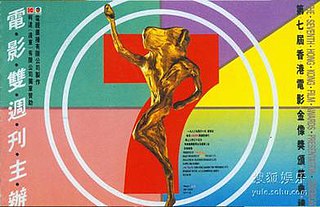
The 7th Hong Kong Awards ceremony, honored the best films of 1987 and took place on 10 April 1988 at Hong Kong Academy for Performing Arts, Wan Chai, Hong Kong. The ceremony was hosted by Lydia Shum and Paul Chung, during the ceremony awards are presented in 14 categories. The ceremony was sponsored by City Entertainment Magazine.
















